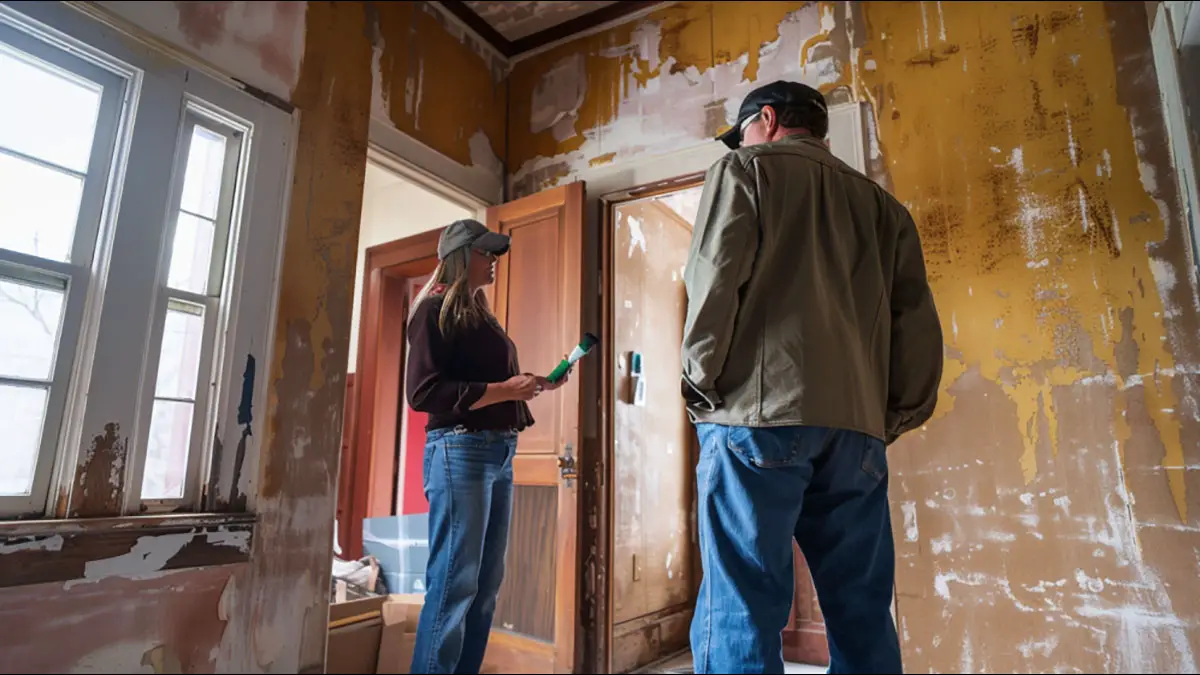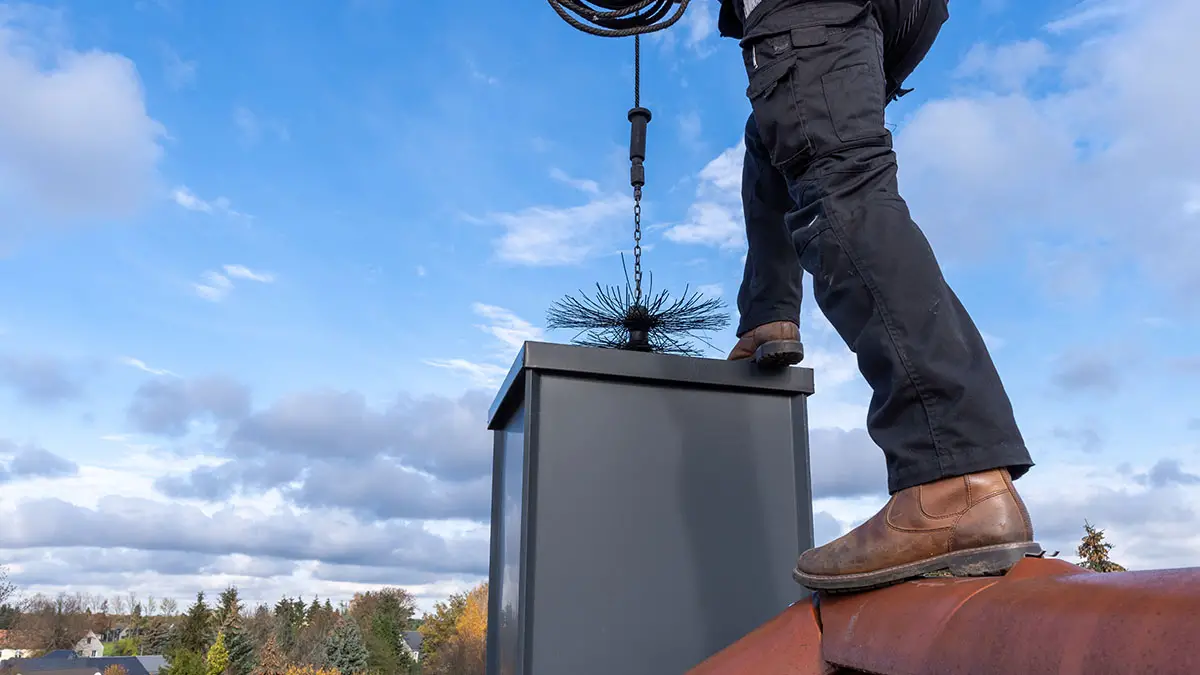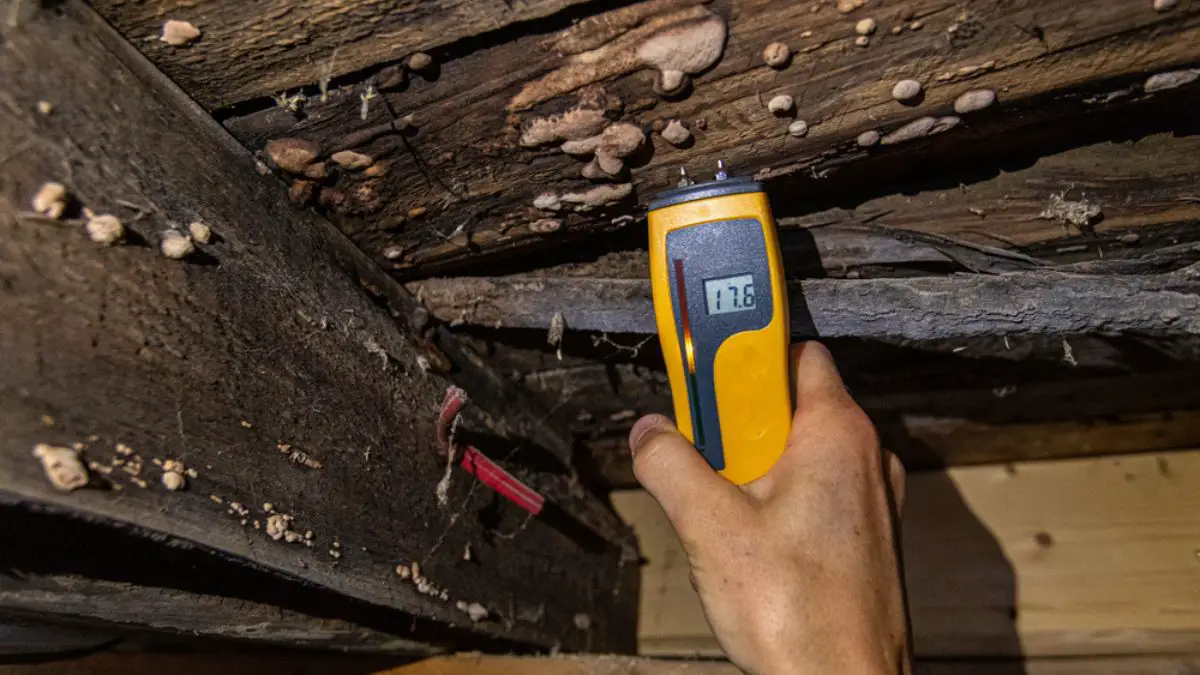When scheduling their home inspection, I always ask the buyer if they plan to attend it. It’s shocking how many respond by asking, “Who should attend a home inspection?”
The home buyer and buyer’s agent should attend the home inspection when possible. The home inspection is the best time for the buyer and the buyer’s agent to ask questions and clarify items that will be included in the home inspection report.
Sometimes, the buyer can’t be present for the home inspection. Some buyers live out of state, and due to geographical restrictions, they can’t be in attendance. Others can’t take time off from work to attend.
However, whenever possible, I highly encourage all buyers, particularly first-time home buyers, to be present for all or at least part of the home inspection.
Let’s look at a few reasons homebuyers must attend their home inspection.

Learn More About the Home
It’s important to understand what a home inspection includes and that home inspectors are not building code inspectors. Buyers make an offer to purchase a home based on a 30-minute walk-through with their realtor.
They then hire a home inspector who spends several hours thoroughly examining the house. If the buyer is not present, they’ve wasted a golden opportunity to see the home they want to purchase through the eyes of an expert.
Discuss Buyer’s Concerns
One of the first things I ask buyers whether they attend the inspection or not is, “Do you have any initial concerns that I should be aware of?” I don’t need this information to complete the home inspection, but it engages the buyers in the inspection process and lets them know I have their best interest in mind.
However, not all home inspectors do this, and a buyer should never assume anything. While home inspectors are certified and trained, they are still human. You may notice something as a potential concern that the home inspector didn’t see. Being present for the home inspection allows the buyer to bring up these concerns face-to-face with their inspector.
Ask the Home Inspector Questions
At the beginning of a home inspection, I inform buyers that I want to answer their questions, so please write them down during the home inspection. At the end of the home inspection, I’ll gladly answer any home inspection questions that I haven’t already addressed—buyers who aren’t present miss this opportunity for a face-to-face dialogue with their home inspector.
The home inspector often shares valuable insight with clients who never make it into the inspection report. Buyers can ask questions regarding the life span of systems, mechanical equipment, appliances, and home maintenance.
Learn Where Things Are Located
If buyers are present for your home inspection, home inspectors will usually walk them around the property, pointing out things such as:
- Where is the main water shut-off located?
- Where do you change the heating/cooling system filters?
- Where are gas shut-off valves are located?
- Where are the ground fault circuit interrupter (GFCI) and arc fault circuit interrupters (AFCI) located?
- Where is the main electrical disconnect located?
- Where are the plumbing clean-outs located?
- How to operate the thermostat?
- How to use the gas fireplace insert?
These are just a few examples, but you get the point. Touring the home with your home inspector can save you time and money when it comes time to move in.
Understand the Home Inspection Report
In today’s high-tech world, more and more home inspectors are writing home inspection reports onsite. Even as little as three years ago, home inspectors would write inspection reports at their offices late at night. In some cases, 2-3 days after the home inspection was completed.
This has led to problems in the past where home inspectors have left valuable information off inspection reports. With the advancements in report writing software and cell phone technology, home inspectors can write their inspection reports onsite and include photos with little to no effort. I often have inspection reports complete and ready to be emailed before leaving the property.
Suppose the buyer is present for the home inspection. In that case, the home inspector can directly review his findings with the buyer and answer questions about the repair’s location and severity.
At the same time, it’s fresh in their mind and eases any concerns arising from the inspection report. When buyers don’t have a verbal review like this, inspection findings are left to the buyer’s interpretation, almost always worse than they should be, causing buyers to overreact to a minor defect.
Things a Buyer Shouldn’t Do at the Inspection
While we encourage the buyer to attend the home inspection, the buyer must let the inspector do their job and not interfere. Below is a list of things home buyers shouldn’t do during their inspection.
Don’t Get Overly Involved in the Inspection
When you hire a home inspector, you’re hiring a trained professional. If you want to shadow your home inspector, that’s fine, but observe. Each home inspector has a set routine, enabling them to inspect the house without missing things.
When you’re shadowing, chatting, or asking many unrelated questions, your home inspector could get distracted and miss something. Also, if you’re overly involved, it increases the inspection time on site. Allow your home inspector the opportunity to complete the inspection and then review their findings with you at the end.
Also, don’t try to do the home inspector’s job. A lot of what home inspectors do can be dangerous. Buyers should never climb ladders or try to access roofs, attics, or crawl spaces. These can be dangerous activities and require specific training to complete.
Don’t be Disappointed When Defects Exist
Every home inspection is different. There is no pass or fail in a home inspection. Every house, no matter how new it is, will have flaws. They’re built by humans and lived in by humans. Your home inspector is looking for significant material defects but will also note minor defects that are not cosmetic along the way at their discretion.
A home inspector expects to find dated bathrooms and fixtures in the 1950s home, but that in and of itself is not a material defect. You may have a list of 30 or more minor defects but no major defects. An inspection report like this could easily be considered a good inspection report.
Understand that there are also things a home inspector isn’t allowed to do, and a home inspector will not move items that obstruct components or systems at their discretion.
Keep Things in Perspective
Lastly, ask your home inspector what the most critical items in the home inspection report are. Understand that no home is perfect. Repairs to the structure, roof, electrical, plumbing, and heating/cooling systems will likely be considered most critical.
As a rule of thumb, most home inspectors will advise their clients that if you can repair the items quickly and for less than $100 and a trip to Home Depot, it’s not considered a critical repair.
FAQs
Should the buyer’s agent be at the home inspection?
The buyer’s agent is the buyer’s legal representative in the purchase transaction and should be present for the home inspection to represent the buyer and their interest in the property.
Who pays for the home inspection?
The home inspection is a part of the home buyer’s due diligence. Since the buyer ultimately is hiring the home inspector, it’s the buyer’s responsibility to pay for the home inspection.
Can you get a home inspection before making an offer?
Sometimes, it is advantageous for a buyer to inspect a home before making a purchase offer. An example is when a renter is looking to buy a home they are currently living in or purchasing a home from a family member that would allow you access to the house outside of a signed purchase offer.
Should I waive my home inspection?
It’s not recommended you buy a house without a home inspection. A thorough inspection can save $5,000 or more in defects and safety issues.







